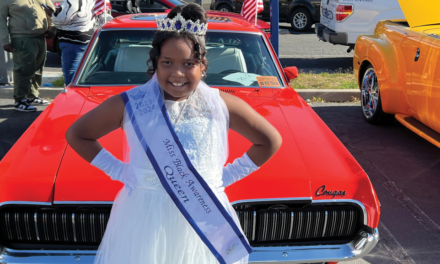By Stephen Janis and Taya Graham,
Special to the AFRO
The historic practice of suppressing Black voting power on Maryland’s Eastern Shore is facing yet another legal challenge in the form of a federal civil rights lawsuit.
The ACLU of Maryland and the Wicomico County NAACP filed a federal suit this week accusing the county of violating the federal Voting Rights Act.
The suit alleges the county suppresses Black voters by electing “at large” members of the county school board and the council, respectively. That process makes it nearly impossible for more Black school board members and council representatives to be elected proportionate to the population.
“This is not a new struggle, but a new front on an old one that has been going on since the reconstruction era,” said Monica Brooks, president of the Wicomico County Branch of the NAACP,
“There has rarely been a time in our country’s history where there hasn’t been some form of racist disenfranchisement or gerrymandering, and Wicomico is no exception.”
The suit alleges that while the county’s population is 30 percent African-American and 40 percent indigenous and other people of color, the seven-member county school board is all White except for one seat. The lack of proportional representation extends to the six-member county council which has just one member of color.
The lack of parity on the council and school board are the result of a voting process that the suit refers to as a 5-2 system, where five officeholders are elected by district, and two are elected at large. The hybrid approach, the suit alleges, minimizes the number of majority-Black districts, thus diluting the ability of the sizable African-American population to elect representatives.
“In this way, Defendants employ the partial at-large structure to perpetuate a legacy of discrimination in the County by limiting Black voters’ opportunities to one majority-Black district among the seven seats available for Council and Board of Education members. This is unlawful,” stated the suit filed in Baltimore federal district court.
The suit highlights the shifting racial demographics in the county, which includes Salisbury, to reinforce allegations of voter suppression. While the county’s Black population has increased from 22 percent to 30 percent since 1990, the share of White residents has dropped from 70 to 59 percent.
The demographic realignment in the county school system is even more stark. In 2020, roughly 63 percent of the student body comprised children of color.
The growing number of non-White residents only highlights the inequities of the voting process, says Debbie Jeon, legal director for the ACLU of Maryland.
“Black voters in Wicomico County have waited far too long for election fairness in this community, and today declare their unwillingness to wait any longer,” said Debbie Jeon, legal director for the ACLU of Maryland.
This is not the first skirmish over voting rights in Wicomico County.
The Department of Justice sued the county in 1987 for electing its five-member council entirely at large. That system produced just one Black council member in roughly 200 hundred years.
The county eventually settled and moved to the current system of 5-2, with two members elected at large. That system has resulted in White elected officials representing 86 percent of all officeholders over the past 32 years.
The suit proposes direct elections for the seven school board members and the creation of two two majority-Black districts as opposed to one that exists today.
But Wicomico is also not the only Eastern Shore government that has faced recent challenges to its electoral process.
Last year the Maryland ACLU and several voters sued the small town of Federalsburg for using a system that decided council elections by at large voting only. The city, which was roughly 42 percent African-American, had never elected a Black representative to serve on the council.
The suit was settled after U.S. District Court Judge Stephanie Gallagher ruled the city had violated The Voting Rights Act. The town moved to four single-member districts which led to the election of two Black council members in September.
The Wicomico County council did not respond to an email seeking comment. School system spokesperson Tracy Sahler said it was premature to respond to the suit.
“We have not been served with the lawsuit mentioned in the news release, so we do not have any statement or comment on it,” Sahler said in an email.
The post NAACP, ACLU file lawsuit alleging suppression of Black political power in Wicomico County appeared first on AFRO American Newspapers .











